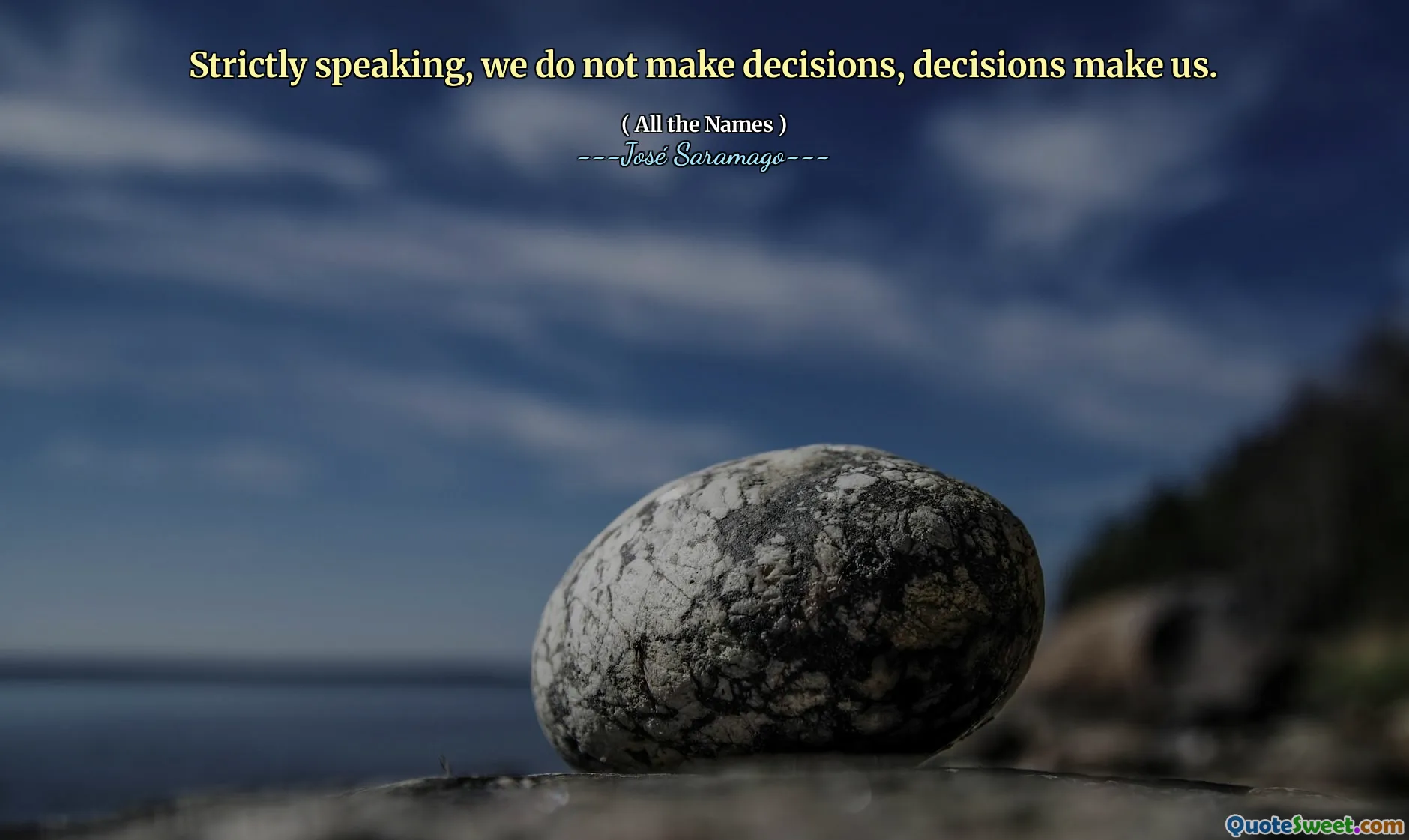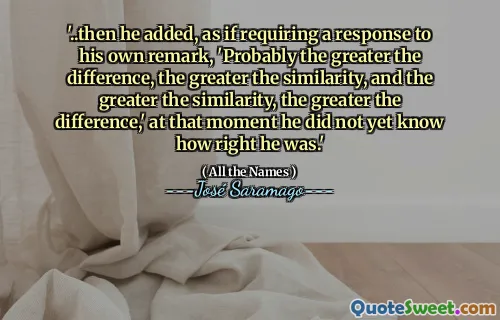
Strictly speaking, we do not make decisions, decisions make us.
This quote by José Saramago challenges the common perception of human agency and free will. It suggests that rather than actively choosing our paths, we are often subjected to a series of influences, circumstances, and underlying decisions that shape our lives. The quote resonates with the existential understanding that many aspects of our existence are shaped by forces beyond our immediate control—be it societal norms, subconscious biases, or previous decisions that set a ripple effect in motion. It prompts us to reflect on the nature of autonomy, raising questions about how much control we truly have over our choices.
In the context of the book 'All the Names', Saramago explores identity, memory, and the traces we leave behind in our lives. It underscores that our identities are not simply the product of deliberate choices, but also of the myriad factors that influence and 'decide' our actions. This perspective may evoke a sense of humility, recognizing the complexity and interconnectedness of human decision-making processes. It encourages us to consider how much of our lives are governed by external pressures or past experiences, rather than fully autonomous decisions.
Furthermore, the quote invites philosophical inquiry into free will versus determinism. Are we truly free agents, or are we unwittingly driven by unseen currents? This can be both unsettling and liberating—if decisions largely make us, then perhaps accepting this impermanence offers peace, or prompts us to consciously shape the decisions that influence our future. Ultimately, it highlights a profound truth about the human condition: our lives are woven from choices, circumstances, and the subtle forces that we often do not consciously control, yet they define who we are.







